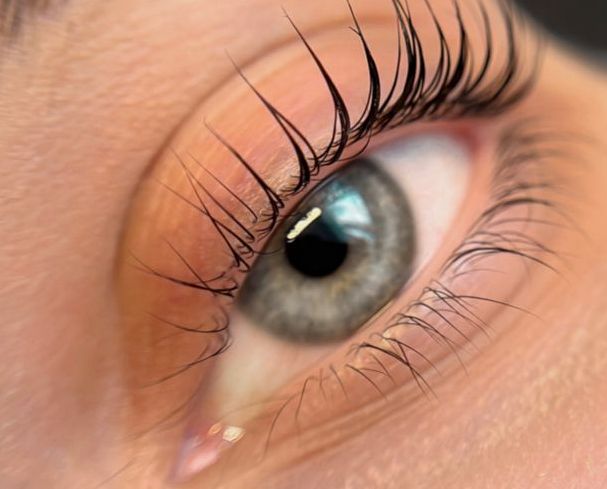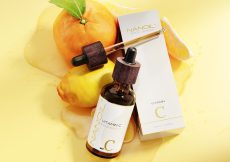Retinoids have been much talked about in the world of skin care buffs recently. They are chemical compounds and derivatives of vitamin A. They’re used for treating various skin conditions, including acne, premature wrinkles or pigmentation spots. Retinoids can be divided into groups. Retinol and retinal are the most popular retinoids in skin care. They’re commonly used as antiaging agents because they manage to reduce visibility of wrinkles and expression lines, tighten the skin and remove discoloration.
Effect of retinoids on skin
Retinoids stimulate the functioning of skin cells and prevent the build up of dead skin cells which may be one of the causes of acne. They also display antiaging properties and help reduce wrinkles by promoting production of collagen – protein guaranteeing skin’s elasticity. Retinoids encourage even distribution of melanin in the skin, which helps fight off all kinds of pigmentation marks. They also minimize evaporation of water through the epidermis (TEWL) and activate the production of hyaluronic acid which delivers optimal hydration, which is why they’re common in products for dehydrated, dry, sensitive complexions.
Adding retinoids to daily skin care is mostly recommended for people who struggle with acne, sun spots, uneven skin tone, premature wrinkles and loss of skin’s firmness. Retinoids are available in different forms such as creams, gels or serums, and are prescribed as well as over the counter.
Retinol vs retinal – how are they different?
Retinol and retinal are one of the forms of retinoids. They’re both vitamin A derivatives, essential to keep skin’s health and proper functioning.
Retinal is a vitamin A aldehyde. The substance is milder than retinol, which is why it’s most common in anti-acne treatments. The antibacterial properties of retinal help remove all kinds of imperfections, smoothing and brightening the skin.
Retinol is an active form of vitamin A. It’s most common in antiaging treatments. It’s more intensive than retinal: smooths fine lines, evens the skin tone, and improves skin’s firmness.
Before you start using retinoids…
Before you incorporate retinoids into your skincare routine, you need to know some super important facts:
- It is recommended to gradually introduce retinoids and allow the skin to get used to the new ingredient, which minimizes the risk of irritations due to too high concentration of retinol or retinal. You should start with a low concentration of retinal and use its stronger form after a few weeks, and then you can reach out for retinol if necessary.
- It is important to use sun protection products during the retinoid treatment because retinoids may make skin more sensitive to UV rays. The sunlight may greatly lower the effectiveness of retinoids, therefore it’s best to use them as nighttime treatment and avoid too long sun exposure.
- Ideally, you should use retinoid-rich products 2 or 3 times a week, which lets the skin get used to the performance of active substances.
- Pregnant women should avoid cosmetics with retinol or retinal because the substances may be hazardous to the baby’s health.




